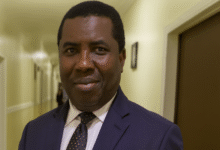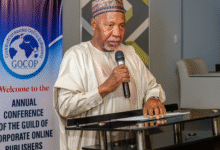IoD, experts brainstorm to bolster Nigeria’s infrastructure development

The Institute of Directors Nigeria (IoD) and economic experts have emphasised the need to bridge Nigeria’s infrastructure deficit to engender economic growth.
According to them, it will also help to shore up industrialisation and global competitiveness.
They spoke at the IoD Research and Advocacy Committee Programme with the theme: “Infrastructure Development in Nigeria: A Necessity for Sustainable and Inclusive Growth” on Thursday in Lagos.
Dr Ije Jidenma, President, IoD, stated that one of the banes of Nigeria’s socio-economic development was poor infrastructure which adversely impacted citizens’ standard of living and overall psychological sense of well being.
Jidenma said that the gap in infrastructure development had affected the country’s growth trajectory in virtually all sectors; power, transportation, communication, aviation, education, health, and others.
She noted that in spite of plans by successive governments to address the infrastructure deficit, combinations of paucity of funds, poor
implementation, policy summersaults and others have hindered its actualisation.
“Nigeria’s infrastructure deficit is estimated at 100 billion dollars annually, a figure that is 100 per cent above our annual infrastructural budget in the past few years.
“According to the African Development Bank report, a country’s infrastructure spend should be a minimum of six per cent of Gross Domestic Product (GDP) in order to attain a reasonable level of sustainable development.
“However, over the past decade, Nigeria’s infrastructure spending has been less than five per cent of GDP and much lower than the amount committed by other developing countries.
“With such gap, it has become difficult for the Nigerian government to adequately address the country’s infrastructure needs,” she said.
She charged the Federal Government to show more commitment to the judicious utilisation of available funds for infrastructure, to make the economy competitive to attract investments for improved revenue generation.
Mr George Donkor, President, ECOWAS Bank for Investment and Development, noted that Nigeria had, in its priority for infrastructural growth and development, focused on policies that finance infrastructural development through Public – Private Partnerships (PPP).
Donkor, represented by Mr Macdonald Saye Goanue, the Bank’s Director, Research and Strategic Planning, said the country’s Infrastructure Company Limited (InfraCo) would substantially reduce its infrastructural deficit.
He said that Nigeria had undertaken substantial investments in infrastructure in projects such as the world trade center, Lekki free zone, Abuja gateway airport, with economic opportunities to make the country more attractive to investors.
Donkor charged the country to target rural areas for such infrastructure development, to enhance social and economic development in the region and reduce regional and social disparities.
“Infrastructure is a foundation of economic growth, financial inclusion, employment, women’s empowerment, better quality of life and poverty alleviation.
“However, substantial investment is needed to drive Nigeria’s infrastructural growth and development to unleash the country’s vast potentials.
“We are willing to do what it takes to get Nigeria to the infrastructural space it needs to be at because once Nigeria’s problem is solved, more than half of the problem in the sub region is solved,” he said.
Mrs Mama Edet, Deputy Director, Planning Division, Ministry of Aviation, stated that the critical role of infrastructure in the lifespan of a country like Nigeria would spur economic growth to help local economies access global market.
Edet said that infrastructure investments in the aviation sector would make air transportation secure, efficient and above all, environmentally-friendly to spur the growth and sustainability of the aviation industry for global competitiveness.
She revealed that the Nigeria was reviewing the civil aviation Act 2006 to ensure that the aviation space continues to regulate aviation safety and other matters without interference.
“Nigeria has continued to make significant improvement in the security infrastructure of the aviation sector with the up to date security equipment at airports, training of aviation personnel with security apparatus to tackle terrorism.
“We have carried out vulnerability assessment of our airports and put in place apparatus to curb any acts of terrorism,” she said.
Dr Muda Yusuf, Founder, Centre for the Promotion of Private Enterprises (CPPE), noting that at the heart of global competitiveness and production is infrastructure, said the private sector must invest in bankable infrastructure projects.
“Though all infrastructural projects are important, the private sector should streamline to only invest in those that are bankable such as telecommunications, roads, railways, urban transportation, among others.
“The nation’s budget needs to be restructured to minimise its close to 80 per cent recurring expenditure, while government needs to do more to de-risk the environment to encourage investments and bring policies that give the private sector the confidence to do more,” he said.
Mr Mansur Ahmed, President, Manufacturers Association of Nigeria (MAN), called for a working implementation framework within the right legal arrangement and backing, to ensure that the country’s infrastructural plans become a reality.
“Nigeria needs the right caliber of persons, right institutions and clearly defined regulatory environment backed by the law in line with best practices to make infrastructure work.
“Budgetary allocations for infrastructure can not work because even though the budget is now released in a timely manner, the release for funds is slow.
“I also object to pension funds being thrown into infrastructure, except with a workable and credible plan that would guarantee returns on implementation,” he said.
(NAN)











